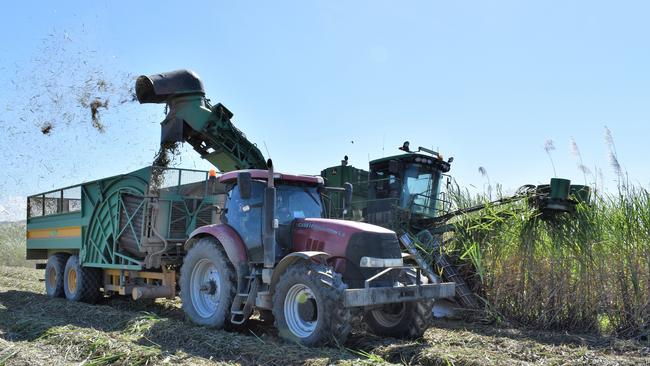Cane growers face $1bn cost as Indian subsidies bite
Indian subsidies have cost the Queensland sugar industry $1bn, ramping up pressure on the World Trade Organisation to step in to help local farmers.
Business
Don't miss out on the headlines from Business. Followed categories will be added to My News.
Indian subsidies have cost the Queensland sugar industry $1bn, ramping up pressure on the World Trade Organisation to take action to protect local farmers.
The Australian Sugar Milling Council and farming group Canegrowers said the revenue hit since 2017 equated to almost $5m a week for the struggling sector.
The cost to the industry is contained in a report, commissioned by the ASMC, that found Indian sugarcane price regulation was causing large production surpluses while subsidised exports had contributed to substantially lower global sugar prices.
Australia joined other sugar producing nations Brazil and Guatemala in 2019 to launch a formal complaint to the WTO about India’s subsidies.
The WTO panel’s report on the complaint could be handed down this year.
ASMC policy, economics and trade director David Rynne said India’s current sugar production of more than 33 million tonnes exceeded its domestic consumption of about 26 million tonnes.
“This excess subsidised production means export subsidies are likely to be an ongoing feature for many years if it is not reined in,” Mr Rynne added.
The report found that India sets minimum cane prices that are very high by global standards, with the government compelling mills to accept all cane.
That means Indian farmers and millers have no incentive to prevent overproduction, with the nation by some estimates the world’s biggest sugar producer.

Canegrowers chairman Paul Schembri said there were now concerning reports the Indian government may be considering another package of export subsidies.
“It is clear that maintaining the collective effort of our diplomatic representatives to the Indian government will be crucial,” Mr Schembri said.
“We are hopeful the WTO will find against the subsidies because the economic pain for Australian growers, millers and sugar communities could be profound and prolonged.”
The impact had been felt across all sugar areas over the past four seasons, including $212.5m in the northern region covering the mills of Tableland, Tully, South Johnstone and Mossman and $151.2m in the Hinchinbrook region.
The cost had totalled $106.6m in the Bundaberg and Wide Bay region, $276.9m in the Mackay and Whitsunday regions and $306.8m in the Burdekin.
The report found that India’s sugar export subsidy program since 2017/18 had become “virtually institutionalised.”
India was now a structural exporter of sugar, with subsidies on exported sugar of up to one-third of an Indian mill’s cost of production of raw sugar.
“Besides export subsidies and regulated cane prices, India’s government also fixes domestic sugar prices well above global prices and provides soft loans to milling companies to build ethanol distilling operations to use sugar and processing by-products,” the report said.
“The decision of India’s government to financially support significant levels of exports has had a real and perverse impact on the global market.”
More Coverage
Originally published as Cane growers face $1bn cost as Indian subsidies bite



